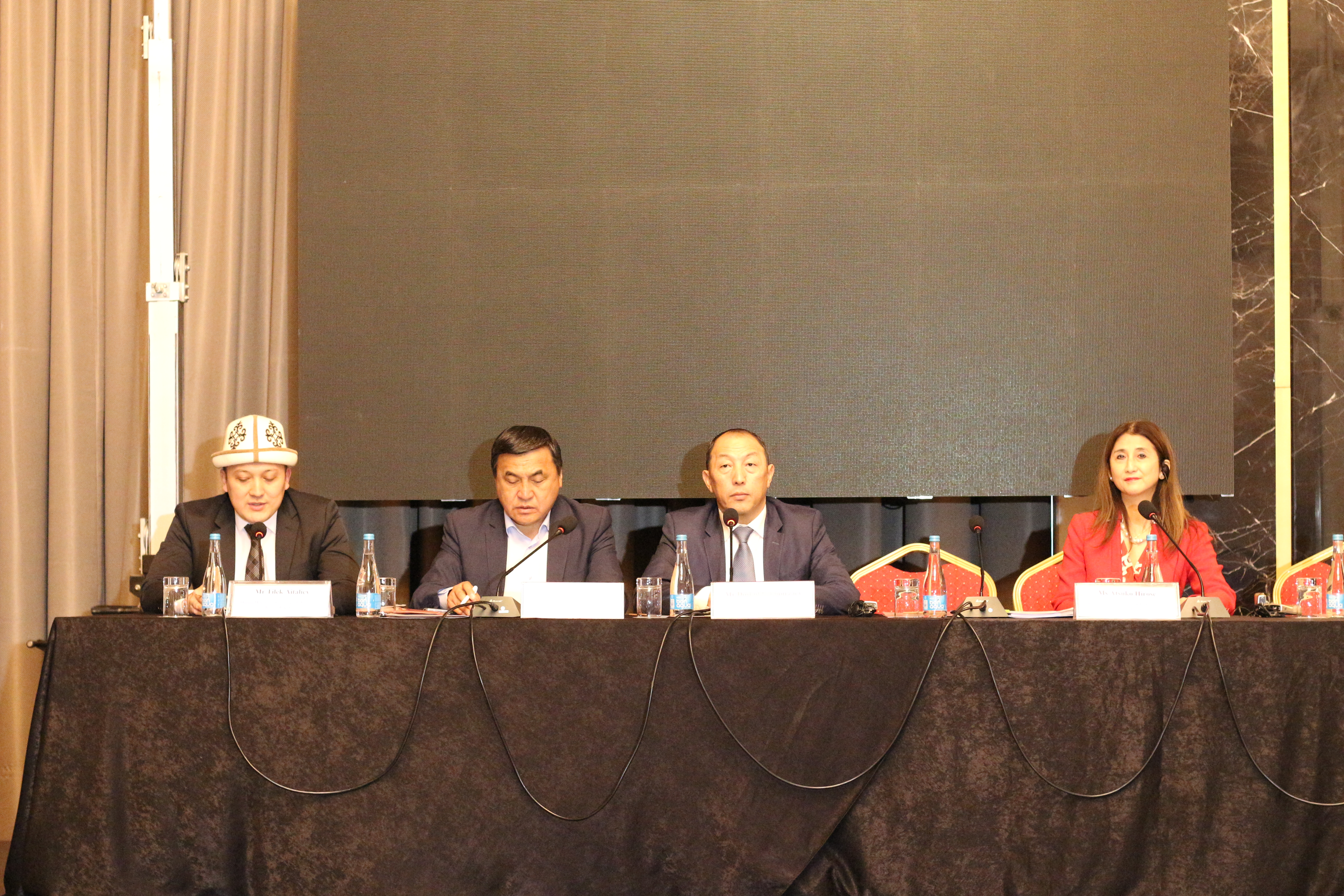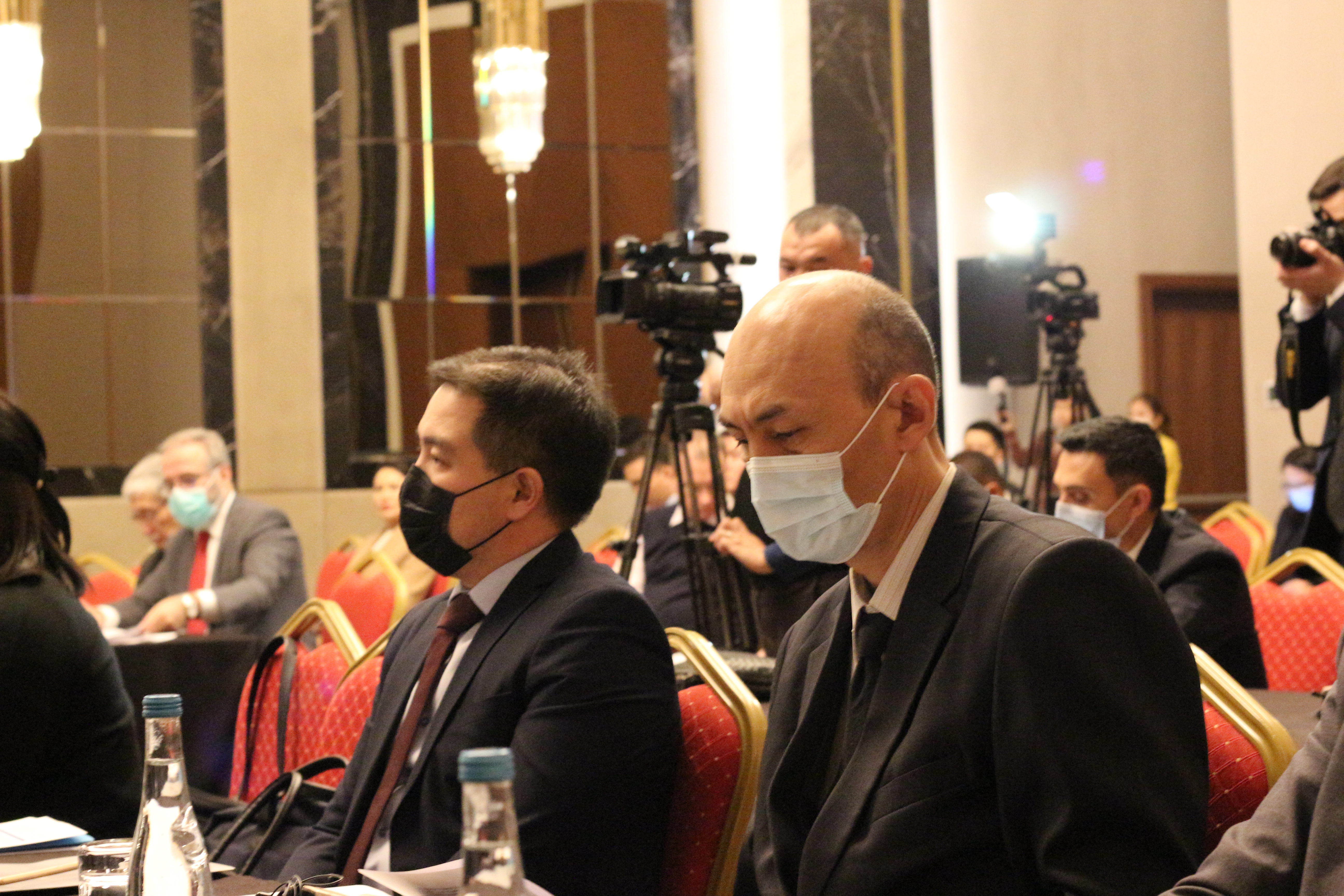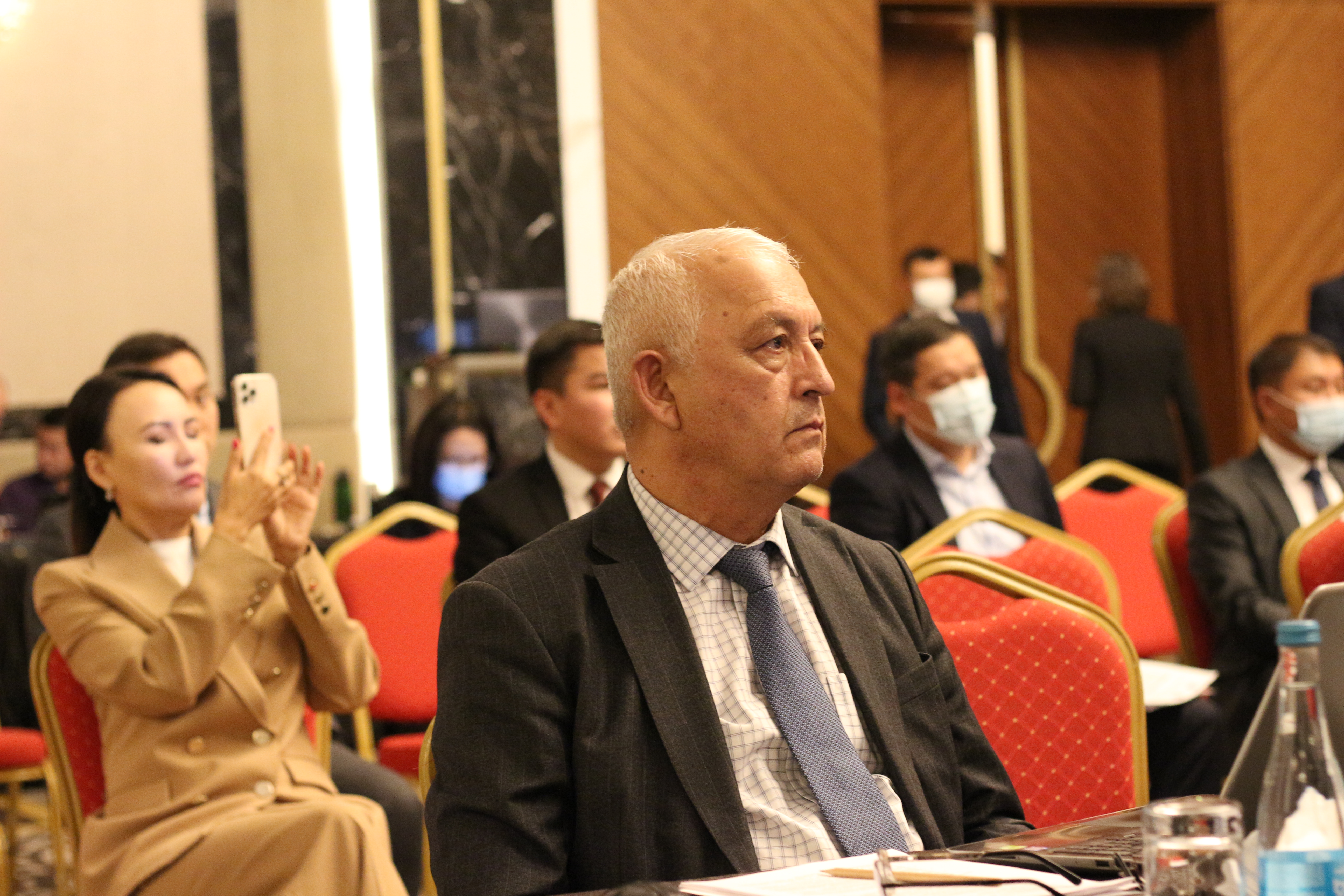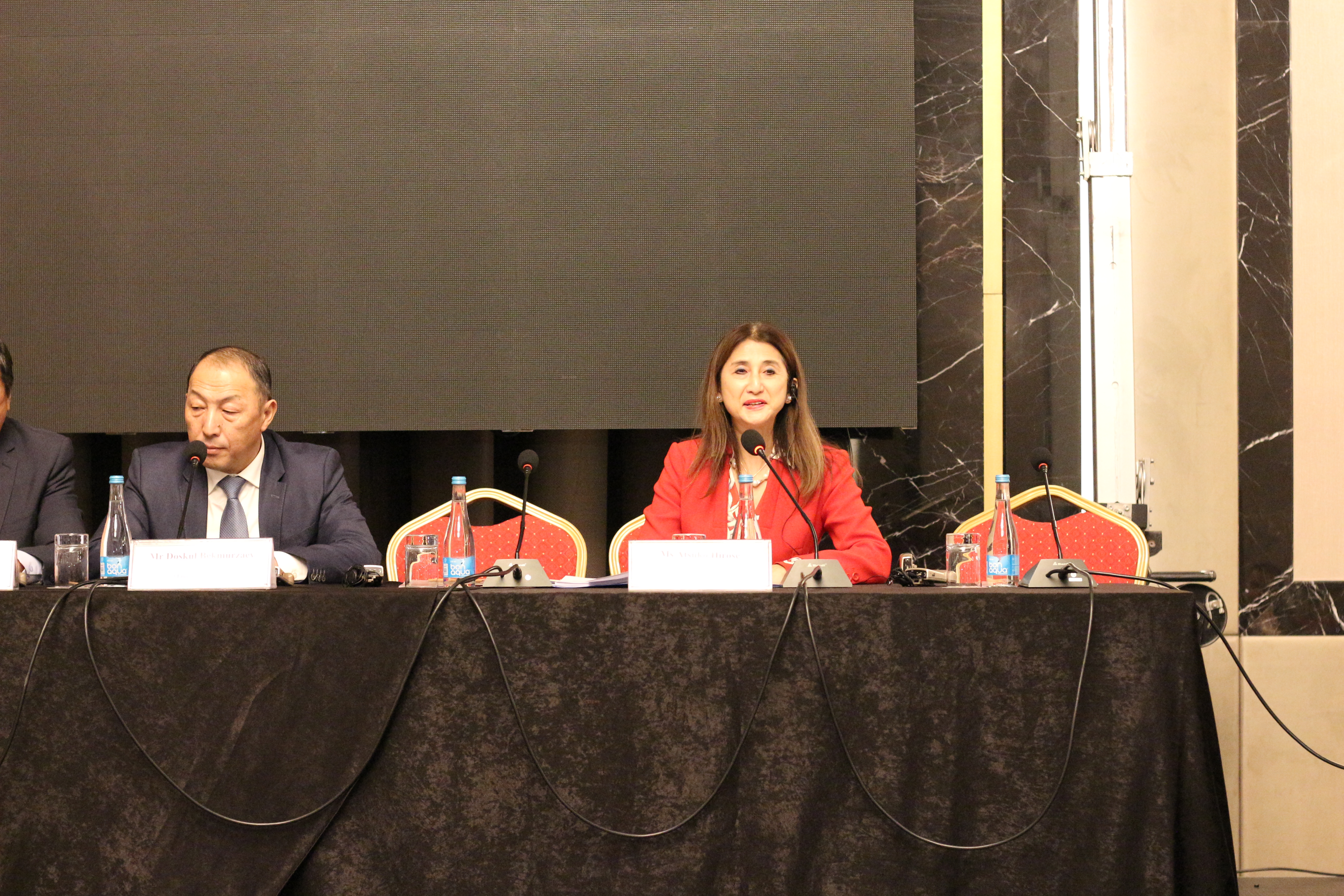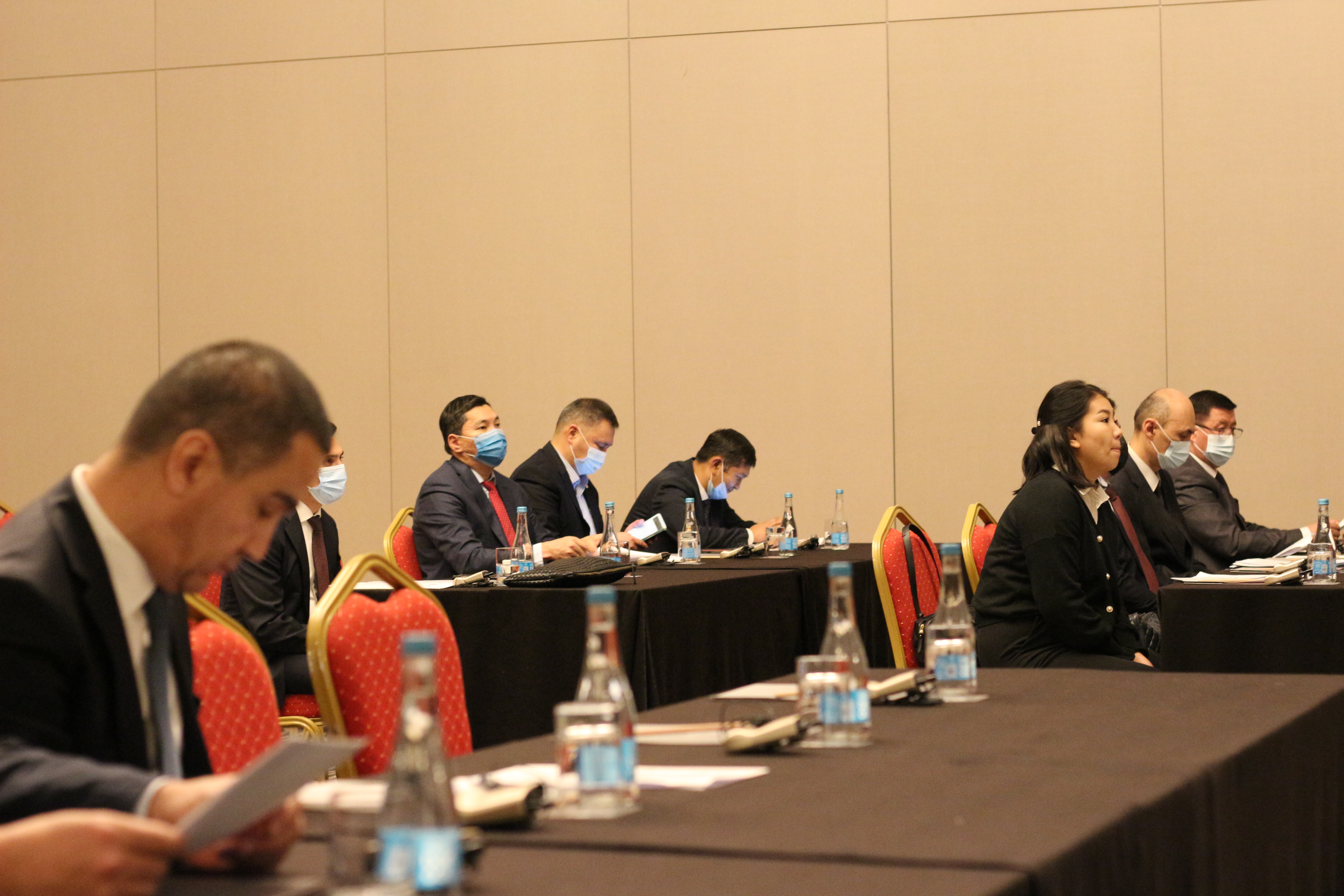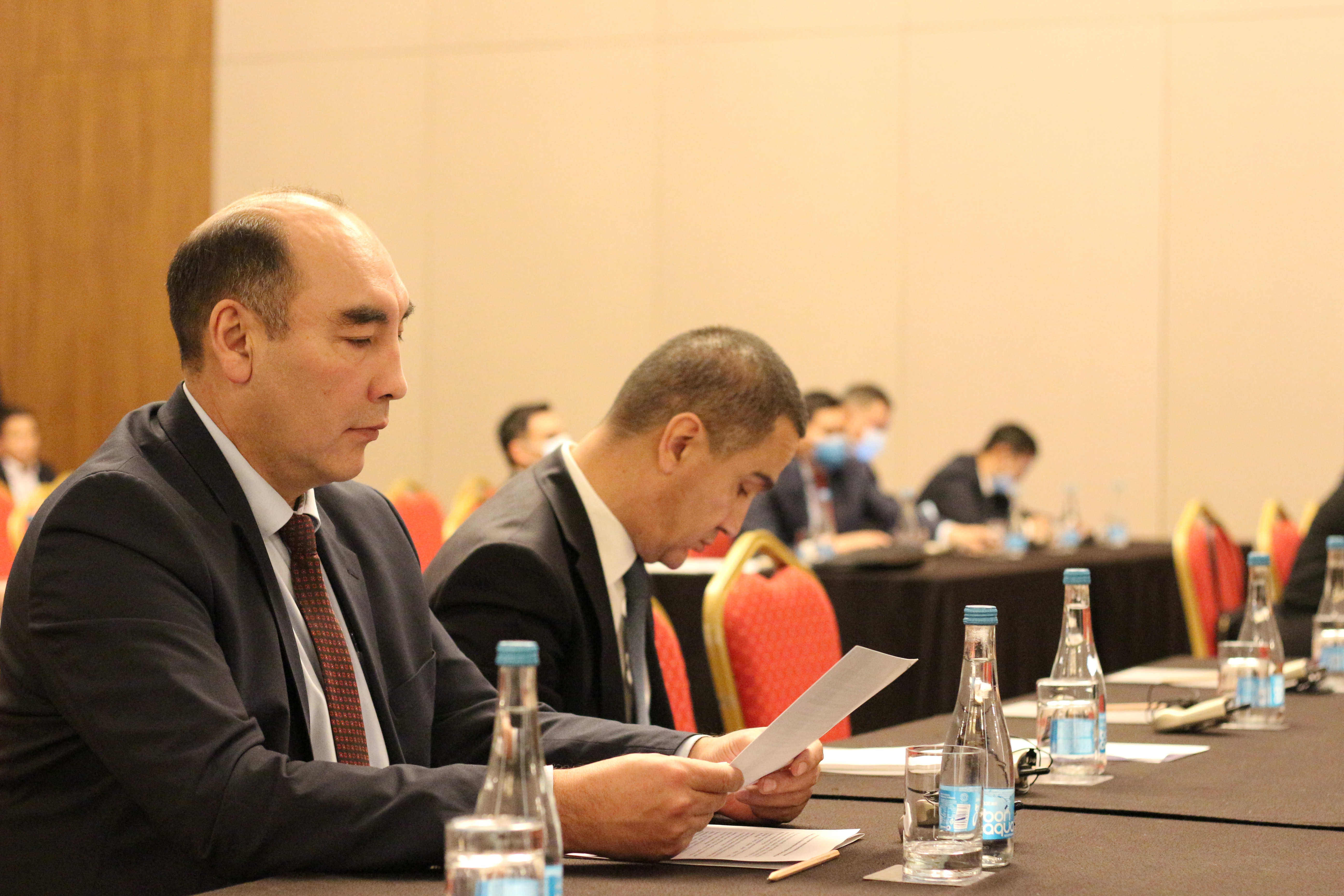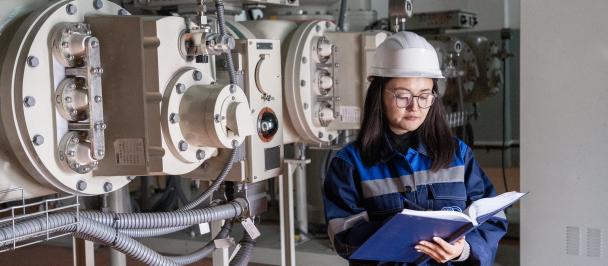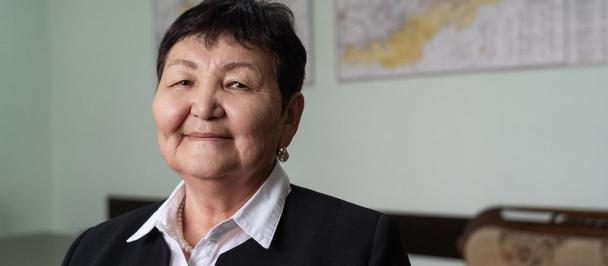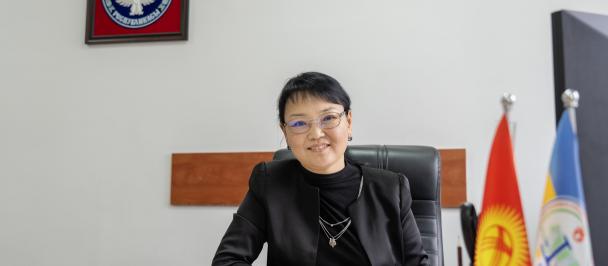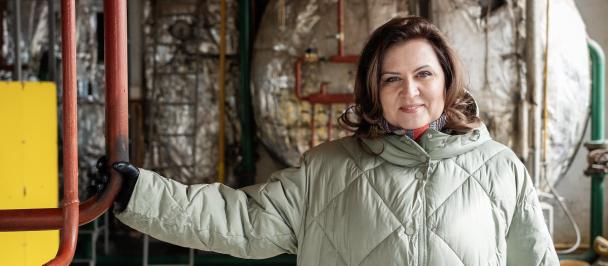Bishkek – November 5, 2021 – On November 4, within the framework of the first "European Union - Central Asia" economic forum, a high-level side event "Promoting sustainable energy and clean energy transition in Central Asia" was held with the support of the Ministry of Energy of the Kyrgyz Republic, International Energy Charter and the United Nations Development Program (UNDP) in the Kyrgyz Republic. The event was attended by the Minister of Energy and Industry of the Kyrgyz Republic Doskul Bekmurzaev, Deputy Minister of Energy and Industry of the Kyrgyz Republic Tilek Aitaliev, Deputy of the Jogorku Kenesh of the Kyrgyz Republic Kanybek Imanaliev, Deputy Secretary General of the International Energy Charter Atsuko Hirose and UNDP Regional Team Leader for Nature Climate Energy, Europe and CIS region Laura Altinger, as well as other high-level officials from governments and international organizations, key international experts from the private sector, financial institutions, think tanks and academia from Central Asia, the EU and its Member States.
This event is one of the stages of global efforts within the framework of the Sustainable Development Goals, the Paris Agreement and other areas. The purpose of the event was to provide a platform for regular dialogue on energy-related challenges between the EU and Central Asia to promote international cooperation in the field of energy.
“Climate change is one of the major contemporary challenges that threaten food production and energy security. It is necessary to take into account the huge water and energy potential and the potential of renewable energy sources in the Kyrgyz Republic. By launching projects, it is possible to achieve efficient use of water resources in the region, considering the generation of clean energy.” – said Doskul Bekmurzaev, Minister of Energy and Industry of the Kyrgyz Republic. He also added that there is a process of improving the legal framework to improve the investment climate in the country, which provides preferential terms for all investors in the development of renewable energy sources.
In turn, Laura Altinger, UNDP Regional Team Leader for Nature Climate Energy, Europe and CIS region, noted that this discussion is a very long-awaited and timely event: “Delivering on Sustainable Development Goal 7 has never been so pressing, especially against the backdrop of climate change and our climate targets under the Paris Agreement. The energy sector accounts for at least two-thirds of global GHG emissions. Today, the Central Asia region has comparatively high energy and carbon intensity of production, facilitated by still-high fossil fuel subsidies. Improving energy efficiency in all sectors will be the largest contribution to lower energy use and decarbonization in the region.”
The ideas and objectives of the site are consonant with the agenda of the 26th session of the Conference of the Parties to the United Nations Framework Convention on Climate Change (COP26), which is being held in Glasgow, UK. It is planned to establish a regular dialogue on energy-related issues between the EU and Central Asia to promote international energy cooperation by:
– Discussing the current state of play of sustainable energy and regional energy integration in Central Asia;
– Identifying specific challenges, the countries face in advancing sustainable energy;
– Exchanging international experiences, best practices, and lessons learnt in promoting energy transition and energy connectivity;
– Exploring and identifying the role of the EU and the Green Deal in enhancing energy cooperation at the national and regional levels.
“The countries of Central Asia face considerable challenges in developing their electricity sectors. Supply-demand adequacy is under increasing pressure, blackouts and load shedding frequently occur, especially in the wintertime. Reforms are necessary to attract much-needed investments into the modernization of existing generation, transmission and distribution facilities. This is essential to ensure the reliable and secure functioning of the national electricity systems to achieve the sustainable development of the region as a whole.” – said Atsuko Hirose, Deputy Secretary General of the International Energy Charter.
Today, all countries of Central Asia recognize the importance of decarbonizing energy systems and promoting renewable energy sources and energy efficiency measures. The EU's experience on clean energy policy frameworks and innovative technologies will be particularly relevant for Central Asia to meet sustainable development goals. Cross-border and regional energy cooperation in Central Asia will open new opportunities for efficiency gains at the regional level.
The results of the discussion on sustainable energy, clean energy transition and market integration are consolidated in a summary document. This document, containing recommendations for promoting bilateral and multilateral cooperation between the EU and Central Asian countries, will be presented at the first economic forum "European Union - Central Asia", which will discuss the transition to a green, sustainable, climate economy, digitalization, creating a healthy business environment. The participants hope that the discussion will take place on a regular basis, and the issues of sustainable energy will be raised at a more global level.

 Locations
Locations
